
UN World Philosophy Day - a reading list
Today is World Philosophy Day. We asked three staff members from the Leiden Institute for Philosophy to name three of their favourite works from the Leiden University Library (UBL) collections. What is: the best introduction to philosophy, the best philosophical work published in the last few years and thé must-read book for every self-declared advanced philosopher.
Wouter Kalf, Susanna Lindberg and Martin Lipman, three Leiden philosophy lecturers, chose one book from the Leiden collections for every one of these three categories, creating three top threes. All books in the reading list below are available for loan by following the link under the title or by searching our catalogue.
What is the best introduction to philosophy in the Leiden collections?
Philosophy is much more than just a list of important philosophers or short explanations of their ideas. It’s the study of ethics, knowledge and existence itself. Where are the boundaries of the knowable and how does one distinguish between just and unjust behaviour? These three books offer not only an introduction to philosophy but teach you to start philosophising for yourself.
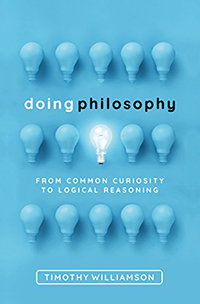
Wouter Kalf chooses: Timothy Williamson - Doing Philosophy: From Common Curiosity to Logical Reasoning.
2018
“Philosophers just can’t seem to agree on the question of what philosophy actually is, let alone what constitutes good philosophy. In this book, Timothy Williamson proposes the view that philosophy is mainly an activity. You “do” philosophy whenever you’re pondering something. When following Williamsons method, you can learn to take well-founded philosophical positions. Centuries-old philosophical questions are presented in this book, but it’s not just a historical overview of the most important arguments for and against answers to these questions, as often happens in other introductions. Instead, you learn how philosophy relates to science and scholarship, and about the possible future for philosophy. It’s a very readable though opinionated introduction.”
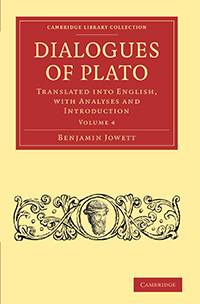
Susanna Lindberg chooses: Dialogues of Plato (mainly the Apology of Socrates or Alcibiades).
“The best way to learn philosophy is by philosophizing yourself, and not by reading textbooks about philosophy. Like all Ancients, Plato does not require a complicated or specialized vocabulary, and in this sense, he is quite accessible. If you read Plato carefully and without expecting quick and easy answers, he will certainly teach you more subtle ways of thinking.”
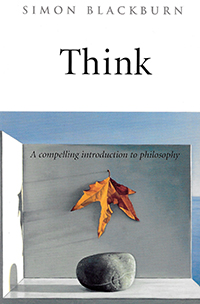
Martin Lipman chooses: Simon Blackburn - Think: A compelling introduction to philosophy.
1999
“This book is a personal favourite when it comes to introductions to philosophy. Simon Blackburn discusses the big philosophical questions, for example, about knowledge (what is knowledge?), free will (are we truly free?), the mind (are mental states reducible to the brain?), and the existence of the world itself. Additionally, he provides a short introduction to logical reasoning. Blackburn offers a clear but accessible introduction to big philosophical questions, without losing sight of the history of philosophy. It’s a perfect first step into philosophy."
What is the best recently published philosophical work in the UBL collections?
Philosophy as a field is always developing. Philosophers gain new insights and ask themselves and society new questions. Nevertheless, this is a very hard question to answer for our three researchers: So many great books were published in the last few years! If they must choose only one book, Wouter Kalf, Susanna Lindberg and Martin Lipman choose the following.
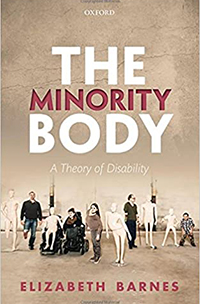
Wouter Kalf chooses: Barnes, E. - The Minority Body: A Theory of Disability.
2016
“In philosophy and the academic world as a whole, we often describe physical disabilities either as a physical defect (you have a disability because you can’t do a certain thing) or a social phenomenon (you have a disability because society treats you in a certain way). Elizabeth Barnes proposes a hybrid theory. Someone has a disability when that person (really, objectively) has a certain kind of body, but the reason why these different bodies are disabled is because society sees them that way. Barnes also shows that people with disabilities are just different and not automatically worse off. Having established this, Barnes starts her applied political philosophy. What, for example, does her argument mean for disability pride events? The Minority Body is a good example of a book that performs analytical philosophy (social ontology, value theory) on the very highest level, showing how its solutions are directly relevant to our personal worldview and government policy."
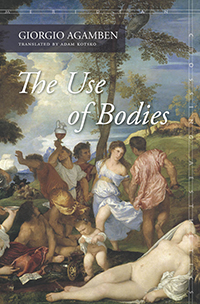
Susanna Lindberg chooses: Giorgio Agamben - The Use of Bodies.
2016
“The most important philosophical book published in previous years is quite impossible to name. I name Giorgio Agamben's The Use of Bodies, not because it would be the single best book of all, but because it completes Agamben's Homo Sacer series, which has been extremely influential. In The Use of Bodies he further develops the idea of discipline and technologies of the self, which were first introduced by Foucault, by developing a modal ontological foundation to these ideas. Having developed the idea of "naked life" - that is, human life exposed to violence, exclusion and killing – in the earlier parts of the work, Agamben now extends his reflections to questions such as slavery, labour, habit and instrumentalism. This work is interesting as such, but it is also important because of the pivotal role of this series in contemporary continental political philosophy as a whole.”
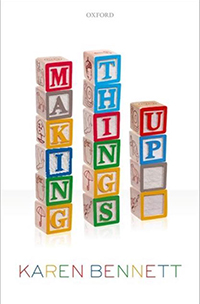
Martin Lipman chooses: Karen Bennett - Making Things Up.
2017
“Things are determined by other things in many different ways. The state of something is, for example, determined by its causes (a glass falls off the table because I bumped into it), or by the particles it is composed of (the liquid in the glass is water because it is composed of H2O molecules). In this recent work, Karen Bennett discusses different forms of deterministic relationships and, in that way, the different ways in which our world is constituted. She defends, for example, that the world is constituted of fundamental layers, which determine how things are on non-fundamental layers. With this book, you take a deep dive into contemporary developments in metaphysics.“
What is thé must-read book for every advanced reader of philosophy?
The advanced philosopher obviously wants more than a recapitulation of known ideas, questions and subjects. They look toward the frontiers of the field in order to understand new ways of thinking. These suggestions by Kalf, Lindberg and Lipman are particularly suited to the more advanced student of philosophy.
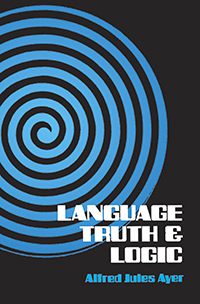
Wouter Kalf chooses: Ayer, A.J. - Language, Truth and Logic.
1936
“Logical positivism is now about a century old, but is still often regarded by academics to be the only right way to do scientific research. In this relatively thin book, Alfred J. Ayer defends logical positivism. According to him, statements are only meaningful when they express a tautology (‘a single person is an unmarried person’), or if they are empirically verifiable (‘there are craters on the dark side of the moon’). Does this mean that metaphysics is literal nonsense? Is there still room for philosophy? Ayer attempts to create a space for philosophical statements that are both meaningful and add to our current knowledge but are not bound to the strict rules of tautologies or empiric verifiability. Is this possible? Are moral statements also meaningless according to logical positivism? Is religion irrational? Ayer was only 26 when this book was published. With infectious enthusiasm, he invites you to join him on his quest to find out if logical positivism is really as plausible as it seems.”
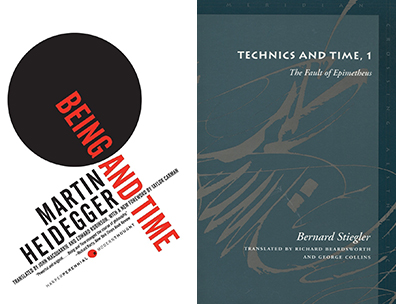
Susanna Lindberg chooses: Martin Heidegger - Being and Time / Bernard Stiegler - Technics and Time.
1927 / 1994
“A definite must-read for advanced philosophy students? Well, the list is long. If you haven't yet read Martin Heidegger's Being and Time, read it. Being and Time is one of the incontestable classics of twentieth century philosophy. In this book, Heidegger turns against the form of phenomenology first developed by his teacher and colleague Edmund Husserl by claiming that instead of studying only phenomena of consciousness, one should extend phenomenology towards the question of being, and this is possible only by making an existential analysis of human existence. This book has been immensely influential for all subsequent continental philosophy and even general culture.
And if you have already read Being and Time, why not try Bernard Stiegler's Technics and Time which updates the same ethos to the era of contemporary technology? In Technics and Time, Stiegler posits a bold general thesis: the entire tradition of philosophy has paid very little or no attention at all to the question of technology. Especially in our time, technology is such a central part of existence that it has become imperative to see how it really constitutes human existence. Stiegler builds upon the legacy of phenomenology (Husserl and Heidegger) and Kant's philosophy: he repeats their fundamental philosophical gesture but shows what happens when the role of technology in the constitution of human consciousness and existence is taken into account. After Stiegler's untimely death last summer, there were lots of events and a number of special journal issues on his work are in preparation. In order to appreciate these, it is good to read at least Technics and Time, which is undoubtedly his main work.”

Martin Lipman chooses: Saul Kripke - Naming and Necessity.
1980
“This is a short but very influential book in which Saul Kripke examines the ways in which language is used to refer to things in the world around us. Kripke discusses the direct reference of terms, the role of thought experiments (like the thought experiment that supposes that there could be a physical copy of you without consciousness), the relationship between necessity and a priori knowledge, and the relationship between mental states and brain states. Many of Kripke’s ideas still play a major role in contemporary philosophical debates and are often considered prior knowledge within the philosophical field. It is a definite must-read for every self-declared advanced philosopher.”
Contact your Faculty Liaison
If you have a suggestion for this list, cannot find a book in our catalogue or have other questions about our collections, contact your faculty liaison via facultyliaison@library.leidenuniv.nl.
